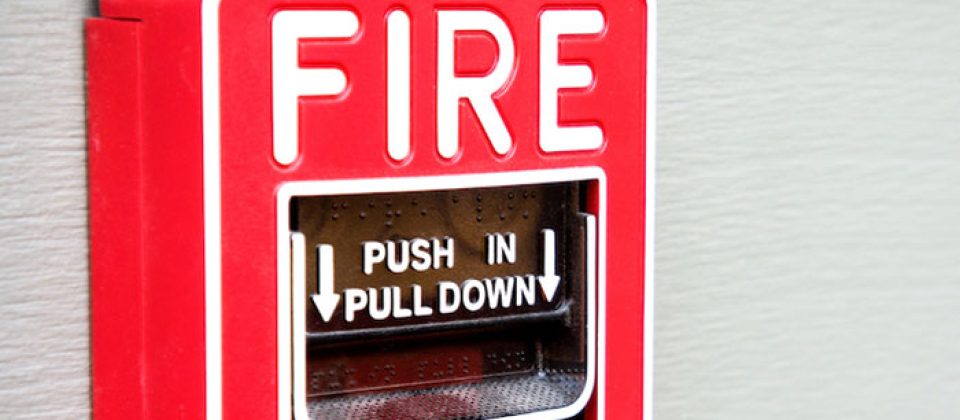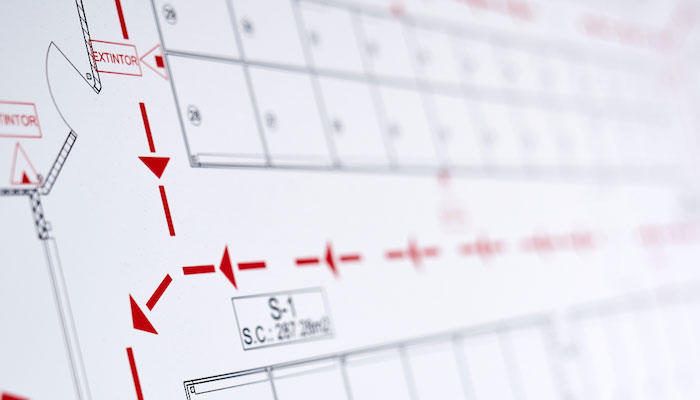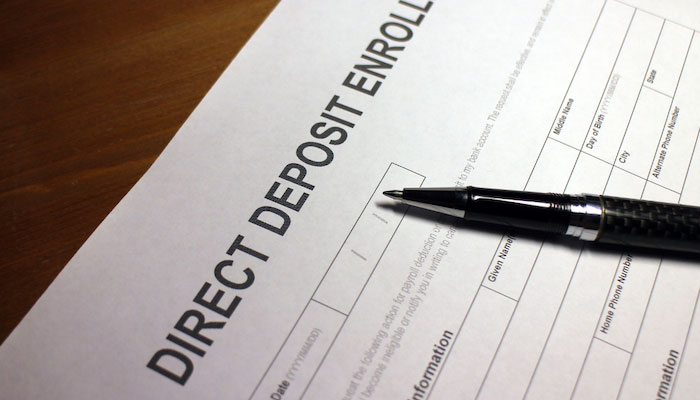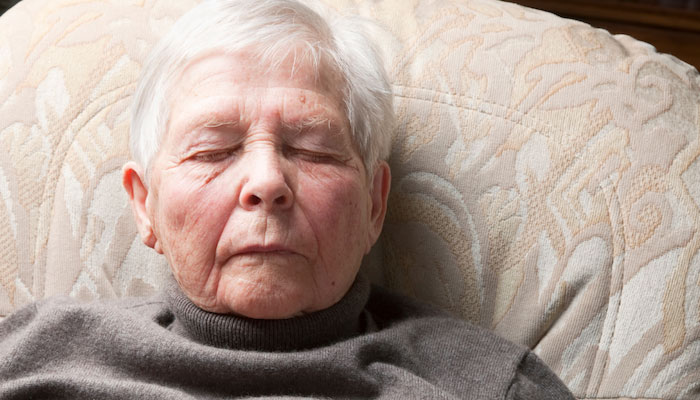
Fire Safety
A fire can become life-threatening in just two minutes. A residence can be engulfed in flames in five minutes. According to the National Fire Prevention Association (NFPA) the home — the place people feel safest from fire — is actually where they are at greatest risk, with three-quarters (75 percent) of all U.S. fire deaths occurring in homes. Where people used to have more than 10 minutes to escape a typical home fire from the time the smoke alarm sounds, today they may have as little as two minutes.
Modern home furnishings are often made with synthetic materials that burn faster and generate toxic smoke, making it extremely difficult to see and breathe.

Learn About Fires
- Fire is FAST! In less than 30 seconds a small flame can turn into a major fire. It only takes minutes for thick black smoke to fill a house or for it to be engulfed in flames.
- Fire is HOT! Heat is more threatening than flames. Room temperatures in a fire can be 100 degrees at floor level and rise to 600 degrees at eye level. Inhaling this super-hot air will scorch your lungs.
- Fire is DARK! Fire starts bright, but quickly produces black smoke and complete darkness.
- Fire is DEADLY! Smoke and toxic gases kill more people than flames do. Fire produces poisonous gases that make you disoriented and drowsy.
Source: Home Fires | Ready.gov
Home Escape Planning
Advance preparations can truly mean the difference between life and death in a home fire. Having a plan practiced with all members of the household builds the muscle memory needed to get out as quickly and safely as possible.
Key messages to plan your escape:
-
Make sure your home escape plan meets the needs of all household members, including those with sensory or physical disabilities.
-
Smoke alarms should be installed inside every sleeping room, outside each separate sleeping area, and on every level of your home.
-
Know at least two ways out of every room, if possible. Make sure all doors and windows open easily.
-
Have an outside meeting place a safe distance from your home where everyone should meet.
-
Practice your home fire drill at least twice a year with everyone in the household, including guests. Practice at least once during the day and at night.
Choose the Right Equipment and Use It Properly
Cook and heat your home only with equipment designed and intended for cooking and heating.
The Big Four Fire Starters
-
Smoking. Many seniors or their visitors still smoke. Unsafe smoking habits lead the cause of fire deaths among older Americans. Never leave smoking materials unattended. Use wide-lipped “safety ashtrays.” Douse ashtrays with water and empty them into a metal container before going to bed. Never smoke in bed or on upholstered furniture. Check all furniture and carpets for fallen cigarettes and ashes before leaving home or going to sleep. Keep all smoking -materials out of bedrooms. Burning bedclothes can create a fire from which escape is impossible. Never allow smoking near an oxygen tank.
-
Heating equipment. Especially dangerous are kerosene heaters, woodstoves and electric space heaters. Buy only UL approved heaters and use only the manufacturer’s recommended fuel for each heater. Do not use electric space heaters in the bathroom or other wet areas. Keep paper and fabric away from heat sources. Once a year, have chimneys, fireplaces, wood stoves and furnaces serviced. Never use a cook stove to heat your home.
-
Cooking. The third leading cause of fire deaths. For the elderly, the kitchen can be a dangerous place. Most kitchen fires occur when cooking food is left unattended. If you must leave the kitchen while cooking, turn off the burner. If there’s something in the oven, check it every 15 minutes. Use a bell timer to remind you. If you leave the kitchen briefly, carry a spoon or potholder with you to remind you to return. If a fire starts in a pan, put a lid on it. Never throw water on a grease fire. Keep flammable liquids, like alcohol and cooking oils, and paper away from the stove. To prevent spills due to overturned -appliances containing hot food or liquids, use the back burner when possible, and/or turn pot handles away from the stove’s edge. Keep a fire extinguisher in the kitchen (but not right next to the stove) and learn how to use it. Never cook while wearing robes or other loose-fitting garments that can contact hot surfaces.
-
Faulty wiring. Many seniors live in older homes with wiring problems. Regularly inspect extension cords for exposed wires or loose plugs. Unplug them when not in use. If you need to plug in two or three appliances, lamps, etc., get a UL-approved unit that has built-in circuit breakers. If you see or smell smoke or sparks coming from any electrical appliance or outlet, shut off the main circuit breaker and call an electrician at once.

Taking Care of Yourself-Get Your Benefits Electronically
A disaster can disrupt mail service for days or weeks. If you depend on Social Security or other regular benefits, switching to electronic payments is an easy way to protect yourself financially before disaster strikes. It also eliminates the risk of stolen checks. The U.S. Department of the Treasury recommends two safer ways to get federal benefits:
-
Direct deposit to a checking or savings account. If you get federal benefits you can sign up by calling 800-333-1795 or sign up online.
-
The Direct Express® prepaid debit card is designed as a safe and easy alternative to paper checks. Call toll-free at 877-212-9991 or sign up online.
Source: People with Disabilities | Ready.gov

Memory Care-Night Safety
A person with Alzheimer’s may prefer to sleep in a comfortable chair in the living room instead of in bed. Be sure that the house is securely locked and be sure matches and cigarettes are out of reach. Consider installing a shut-off valve (for a gas stove) or a circuit breaker for an electric stove so the stove cannot start a fire at night.
Safety Tips- Why Seniors Are at Risk for Fire Death and Injuries
Alzheimer’s disease and dementia can impair a person’s vision, depth perception, hearing, sense of smell and sensation to heat, as well as their judgment. These issues make it difficult to respond to an emergency and pose an enormous threat should a fire occur.
- Medication side effects may affect a senior’s ability to be alert and make quick decisions.
- Physical disabilities may impair a senior’s ability to take quick action.
- Vision or hearing loss can prevent individuals from noticing fires or the causes of fires or hearing alarms.
- Seniors who live alone have no one to help them put out or escape from a fire. Practice getting out. If you have practiced escape routes, your memory and instinct will help you move in the right Direction.
Source: FEMA.gov